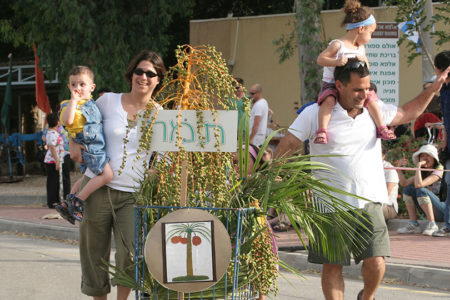Israel in the News Apr/May 1992
Odessa delegation warns Israelis of danger from Moslem republics
from The Jerusalem Post
The heads of a visiting Odessa delegation last week warned their Israeli hosts of the dangers inherent in nuclear weapons falling into the hands of Soviet Moslem republics about to declare their independence.
The head of the visiting Ukrainian delegation, Eduard Vorevitch, said four of the six Moslem republics have nuclear weapons. “The six republics’ desire for freedom is liable to make the situation more dangerous,” Vorevitch said, adding that the republics’ fierce nationalism threatened Israel, especially since the republics are strongly influenced by Islam and Iran.
Foreign ministry gets diplomats galore
from The Jerusalem Report
Israel enters 1992 less isolated diplomatically than at any time since 1967.
Most of the states of the former Soviet bloc, which except for Romania broke relations to protest what they called Israeli aggression in the Six-Day War, have now renewed diplomatic ties with Israel. So have many of the Black African countries, which cut ties in 1973 during the Yom Kippur War.
Other states have come aboard for the first time: Albania and the newly independent former Soviet Baltic republics at ambassadorial level, and China at the level of scientific and tourism missions with diplomatic status. Other former Soviet republics are in the pipeline.
At the end of 1991, Israel had diplomatic relations with 104 countries. It maintained 88 missions abroad. They were distributed more widely than ever before: 30 in Europe, 20 in Latin America, 14 in North America, 13 in Asia, 11 in Africa.
The number of diplomats posted overseas rose by 10 percent in 1991, to about 400. With another six or seven missions slated to open in 1992, the tally is expected to rise by another 40. The first, in South Korea, opened in January.
CIS Moslems invite Israelis
from The Jerusalem Post
An Israeli diplomatic delegation has been invited to visit Moslem republics in the Commonwealth of Independent States, Foreign Minister David Levy told the cabinet recently.
Levy also said that he had invited leaders of four Moslem republics to visit Israel, ministry officials confirmed, without specifying which ones were invited. Senior Foreign Ministry officials confirm that Israel will be setting up a diplomatic mission in either Khazakistan or Uzbekistan.
Levy also confirmed in the cabinet that he has worked out an agreement with the Finance Ministry to set up missions in Kiev, Riga, and one of the Moslem republics. He defended his decision to seek immediate ties with former Soviet republics, saying Israel has been developing links with many republics over the past year, and they possess a tremendous economic potential.
Terrorists vow to continue war
from Near East Report
Americans were overjoyed to learn about the release of all the remaining U.S. hostages in Lebanon. The event also served, however, to remind the West about the nature of terrorism, and the fact that groups like Hezbollah continue to view the U.S. and Israel as their foremost enemies.
Doctors said two of the hostages, Alann Steen and Joseph Cicippio, will remain physically scarred for the rest of their lives as a result of beatings they received from the terrorists.
Before his release, hostage Terry Anderson was forced to read a statement in which the terrorists denounced America and Israel in the most vitriolic terms. It attacked Israel and the U.S. as “criminals,” and said the U.S. was seeking to use “imprisoned” Arabs by luring them into peace talks with the Jewish state.
“We will not accept less than the elimination of Israel,” the terrorists said (AP, Dec. 5). Hezbollah stepped up its attacks on Israel’s South Lebanon security zone … firing scores of Katyusha rockets at Christian villages in the zone. For months, Israeli sources have expressed concern about increased efforts by Hezbollah to attack IDF soldiers and infiltrate into Israel.







